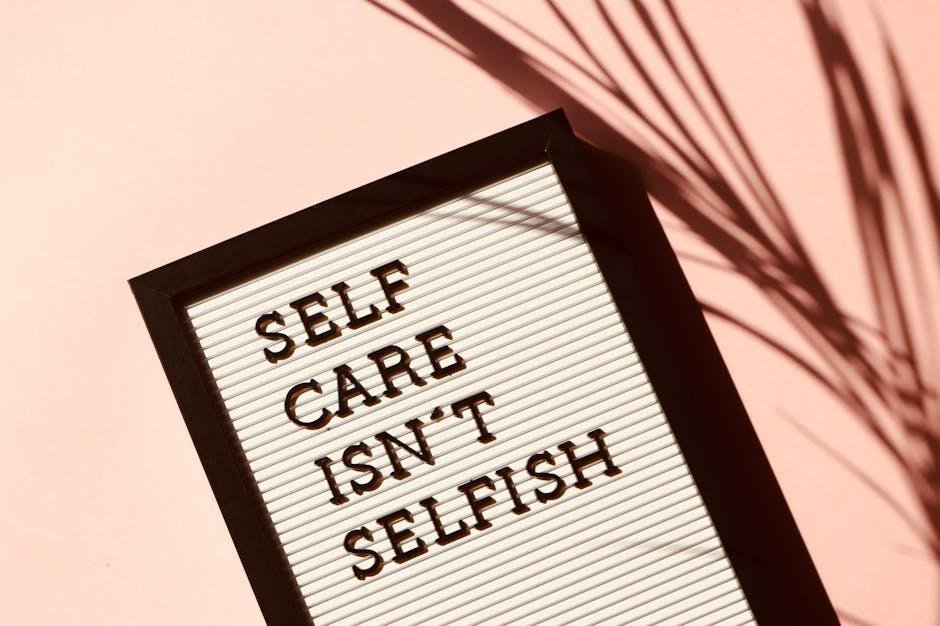In today’s fast-paced world, financial stress can often feel like an unavoidable weight on our minds. But what if improving your financial wellness could actually boost your mental health? The connection between money and mindset is powerful—when you take control of your finances, you’re not just building a safety net for your future, you’re also nurturing your emotional well-being. In this article, we’ll explore how boosting your financial wellness can lead to a healthier, happier mind, and share practical tips to help you thrive both financially and mentally. Ready to take the first step toward a brighter, balanced life? Let’s dive in!
Table of Contents
- Understanding the Powerful Link Between Financial Wellness and Mental Health
- Practical Steps to Take Control of Your Financial Future Today
- Mindful Money Habits That Cultivate Calm and Confidence
- Creating a Balanced Life by Prioritizing Both Your Wallet and Well-being
- Closing Remarks
Understanding the Powerful Link Between Financial Wellness and Mental Health
Financial stability does more than just secure your material needs—it acts as a cornerstone for emotional resilience. When your finances are in order, stress levels drop, and your mind can focus on growth, creativity, and overall well-being. The peace of mind that comes from having a clear financial roadmap allows your brain to recharge and tackle challenges with confidence. Without the constant distraction of money worries, you’re free to invest emotional energy into positive relationships, personal development, and self-care practices.
Building financial wellness involves more than budgeting; it’s about cultivating healthy habits that nurture your mental health. Some powerful practices include:
- Setting realistic financial goals: Breaking down big dreams into manageable steps brings a sense of accomplishment and motivation.
- Building an emergency fund: This safety net reduces anxiety about unexpected expenses and provides a buffer for tough times.
- Seeking financial education: Empowering yourself with knowledge can transform money from a source of stress to a tool for freedom.
When your finances and mind are harmonized, you unlock a powerful synergy that elevates your quality of life on every level.
Practical Steps to Take Control of Your Financial Future Today
Taking charge of your finances starts with laying a solid foundation. Begin by tracking your income and expenses meticulously—this simple habit can unveil hidden spending patterns and reveal opportunities to save. Next, set clear, achievable goals for both the short and long term, whether that’s building an emergency fund, paying down debt, or investing for retirement. Remember, consistency triumphs over perfection; automate savings if possible to cultivate discipline without the daily mental load.
Empower your financial journey further by embracing tools and resources designed to streamline management and boost confidence. Consider using budgeting apps, joining financial literacy courses, or consulting with a money coach. Surrounding yourself with a supportive community who shares your aspirations can also keep motivation high. Small, intentional steps taken today can create a ripple effect, transforming not just your portfolio, but your peace of mind and mental resilience.
- Allocate a specific time each week to review finances
- Create a flexible budget that accommodates life’s unpredictability
- Celebrate small wins to reinforce positive money habits
- Educate yourself continuously on financial wellness topics
Mindful Money Habits That Cultivate Calm and Confidence
Creating a strong financial foundation often begins with simple, intentional steps that foster peace of mind as much as a healthy bank balance. Embracing consistent money habits—like tracking expenses, setting realistic budgets, and prioritizing debt repayment—can transform financial chaos into a source of empowerment. When you develop habits that keep your finances clear and manageable, you’re not just nurturing your wallet; you’re also cultivating a mindset of control and confidence that spills over into other areas of your life. Such practices allow you to respond to unexpected expenses calmly, knowing you have a plan and resources to protect your wellbeing.
Integrating mindfulness into money management encourages more than just awareness—it builds resilience. By tuning into your spending triggers and emotional responses, you learn to pause before making decisions that might lead to regret or stress. Incorporate small daily rituals, like reviewing your financial goals each morning or reflecting on your progress weekly, to stay connected with your intentions. Consider adopting these habits:
- Automate saving: Remove the friction of manual transfers by setting up automatic deposits to your savings account.
- Practice gratitude: Acknowledge the value in what your money affords you, shifting focus from scarcity to abundance.
- Limit impulse buys: Keep a 24-hour rule before making unplanned purchases to reduce anxiety-inducing regrets.
These mindful behaviors nurture a calm confidence—proving that financial wellness isn’t just a goal, but a continual state cultivated through intentional care.
Creating a Balanced Life by Prioritizing Both Your Wallet and Well-being
Striking a harmonic balance between financial security and personal well-being is essential in cultivating a vibrant, fulfilling life. When your finances are in order, it reduces stress and cultivates a sense of control, which directly benefits your mental and emotional health. By adopting a mindset that values both saving and self-care, you empower yourself to make choices that nurture your future without sacrificing present joy. This approach encourages moderation—spending on what brings genuine happiness while building a safety net that guards against uncertainty.
To achieve this balance, consider the following practices:
- Mindful budgeting: Allocate funds not only for essentials but also for activities that recharge your mental health.
- Regular financial check-ins: Stay connected to your monetary goals to prevent anxiety and impulsive decision-making.
- Investing in wellness: Prioritize spending on experiences and routines that boost your emotional resilience, like therapy, hobbies, or fitness.
Closing Remarks
In the end, nurturing your financial wellness is more than just balancing numbers—it’s about cultivating a healthier, happier mind. When you take steps to improve your financial situation, you’re also investing in your mental well-being, creating a foundation of stability and confidence that empowers every aspect of your life. Remember, small changes can lead to big impacts. So start today, embrace mindful money habits, and watch how boosting your financial wellness can fuel a brighter, more resilient mindset. Your journey to a stronger, healthier you begins with one smart step!
Related Products
-
Sale!
Frida Mom 2-in-1 Postpartum Pads, Absorbent Perine…
Mom Original price was: $19.99.$15.19Current price is: $15.19. -
John Deere Bubble Lawn Mower for Toddlers, Bubble …
Kids $29.99 -
Hanes Men’s EcoSmart Fleece, Pullover Crewneck Swe…
Clothing $9.31







